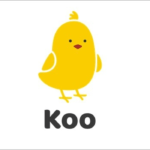It has been a journey of joy and privilege to walk alongside young and emerging leaders in the Asian context for the past 10 years.
As a Kiwi and a professional coach working in Asia, there is much I’ve learnt, and continue to learn, regarding culture.
Let me share a few insights that I’ve gleaned along the way.
What should I do?
“Tell me what I should do” is something I hear often from the people I’m coaching. Advice is expected to come from those most senior in a hierarchical society, who are seen as having both experience and wisdom due to their age or position.
The school system, generally, does not encourage problem solving or lateral thinking. Young people learn to do what they are told by those in positions of authority.
Older folks in society, whether parents, aunties or bosses, feel it is their responsibility to impart advice to younger people. This is the social norm, and people have become accustomed to it.
As I am a little older and more experienced than those I coach, the expectation is that I will be giving pearls of wisdom and advice on how the coachee can move forward.
After coaching one young man for the first time, he said, “I thought you were going to give me a list of things to work on, but you didn’t – and I think that’s better”.
The International Coaching Federation (ICF) defines coaching as partnering with clients in a thought-provoking and creative process that inspires them to maximise their personal and professional potential.
When I am asked for advice, I turn the question back on the coachee – “Well, let’s think about that. What other options do you see?” or “I wonder, how does your experience speak to this?”
Once, while coaching a young woman around a very complex family matter, she repeatedly asked, “What do you think I should do?”
I kept evading the answer because in reality I had no idea! I am from a different culture and family context. How could my life speak to the issues she needed to consider?
In fact, my advice could really miss the mark in cultural understanding and mess things up!
As we came to the end of the conversation, she gained beautiful insight and was able to say with much joy – “I know what to do now and you didn’t tell me!”
People are creative, resourceful and gifted, and my experience is that, when given the space and encouragement to process deeply, younger people in Asia do come up with their own insights and solutions, without needing my pearls of wisdom!
Trust is the Key
“Thank you for not judging me” is another comment I hear regularly. Safety is such an important part of the coaching conversation.
My observation is that so many gifted leaders and young professionals keep matters of the heart — both dreams and challenges — locked deep inside. They do not have a safe place to share where they feel supported, encouraged and affirmed.
Providing a neutral, non-judgmental space for thinking and dreaming, unlocks such beautiful potential. The foundation to this space is trust, but the Asian context in which I coach is one of ‘low trust’.
In general, people do not trust others with heart matters as these may be passed on or misused. Establishing trust, being clear that the conversation remains confidential, and not criticising the person or what is shared, are foundational aspects for a transformative coaching relationship.
Age matters
As my years have increased, I have a much greater appreciation for the respect given to age and seniority in an Asian context. I have observed in this cultural context there is often a mental block about learning from someone younger than you. I know that my age brings respect and value and I am humbled by that. I seek to steward that respect well.
If I sense that a leader is close in age to me, I subtly drop my age into the conversation so that they know I am older. Nearly all of the leaders and young professionals I coach are younger than me and I know that this age differential is helpful.
One time when I was asked by a leader, quite senior to me in age, to give coaching, I knew that he did this in a posture of counter-cultural humility. And where I do coach regularly, a leader who is senior to me, we have a prior relationship that spans almost 15 years. It may be that for younger coaches, more time is needed to build rapport.
Fear is often the barrier
Many times, I have listened to very gifted young professionals share their goals, followed by a very articulate plan of how to get there. As I listen, I wonder to myself, why am I here as a coach? I will often comment – “You clearly are intelligent and have an effective plan in mind. What’s holding you back?”
Silence and downcast eyes often follow, then the answer comes – “Fear!” “Fear of what?” I ask. And I repeatedly hear one of these three replies – “Fear of failure,” “Fear of making mistakes”, or “Fear of what people will think”.
In coaching, it is key to peel back the layers to the real issues that are blocking growth. My experience in Asia is that the real issue holding people back is usually not their expertise, resources or time, but their own internal fears and barriers.
Relationship is everything
In Asia, relationship trumps everything. Coaching is not a transaction but a relationship of trust, care, support and empowerment.
Where a relationship of trust is established, people will return again and again for coaching. Studies have shown that the key factor that contributes to the success of a coaching engagement is the quality of the relationship between the coach and the client.
As a coach, I continue to work on my skills, seeking to grow in my professional expertise. However, I must never neglect what I bring to the coaching conversation as a person. How I show up in the relationship is the key.
Finally
Earlier this year, a very successful leader in his 70s stated, “Coaching does not work in Asia. Young people want to be told what to do!” My experience is completely contrary to this.
Young leaders and professionals thrive when given the space to open their hearts and minds and when they invite you alongside as a thinking partner. While there are cultural distinctions to be aware of, I can say wholeheartedly, “Coaching most certainly does work in Asia”.
(ICF) Credential-holders are part of a self-regulating group of elite coaches, who provide accountability to clients and the coaching profession as a whole. They pursue and complete rigorous education and practice requirements that provide unquestioned legitimacy to their commitment to excellence in coaching.
Find a Coach! and maximise your potential
The International Coaching Federation (ICF) is the world’s largest organisation leading the
global advancement of the coaching profession and fostering the role of coaching as an integral part of a thriving society. Founded in 1995, its 35,000-plus members, located in more than 140 countries and territories, work toward common goals of enhancing awareness of coaching and upholding the integrity of the profession through lifelong learning and upholding the highest ethical standards.
Through the work of its six unique family organisations, ICF empowers professional
coaches, coaching clients, organisations, communities and the world through coaching.
In India, ICF is represented by six vibrant chapters, all led by volunteering professional coaches — ICF Bengaluru, ICF Chennai, ICF Delhi, ICF Mumbai, ICF Pune and ICF Hyderabad.
 The author, Maree Scully is an experienced ICF Professional Certified Coach (PCC), based in India, but originally from New Zealand. Her passion can be described as “helping people grow”. In addition to leadership coaching and mentoring, she facilitates practical management trainings, and flourishes working cross-culturally.
The author, Maree Scully is an experienced ICF Professional Certified Coach (PCC), based in India, but originally from New Zealand. Her passion can be described as “helping people grow”. In addition to leadership coaching and mentoring, she facilitates practical management trainings, and flourishes working cross-culturally.
Value our content... contribute towards our growth. Even a small contribution a month would be of great help for us.
Since eight years, we have been serving the industry through daily news and stories. Our content is free for all and we plan to keep it that way.
Support HRKatha. Pay Here (All it takes is a minute)




































